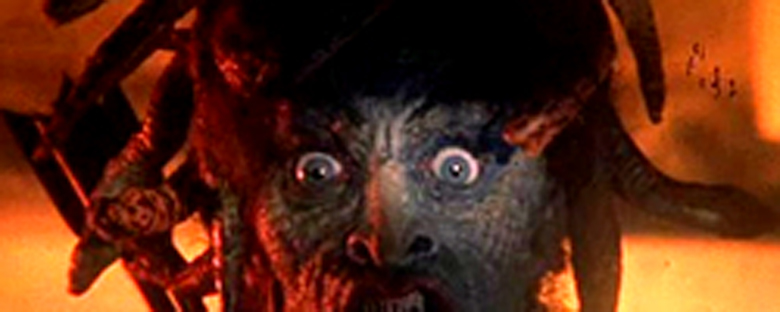Reviews
Desmond Davis
UK / USA, 1981
Credits
Review by Rumsey Taylor
Posted on 06 February 2005
Source MGM VHS
Related articles
Reviews: Jason and the Argonauts
Clash of the Titans is primarily rooted in Greek myth. It contains Perseus, his correspondence with and manipulation by the gods Zeus and Hera, his capture of the winged stallion Pegasus, and confrontation with Medusa. Notably, the film’s central antagonist, a giant sea-dwelling creature (one of the title’s Titans) named the Kraken, derives not from Greek but Norse mythology. Furthermore, there is the erroneous addition of Bubo, a prophetic brass owl bestowed with the incompetent comedy of C-3PO.
Conceptually, this leniency and compromise of such legendary source material is ground for criticism. It is as if a twist is needed to enhance the familiar story. The film’s imagination is rendered with formidable success on the part of Ray Harryhausen—even if the story had been a strict derivation, its many visual highlights would surely ensure its prominence as an adaptation of Greek myth. Nonetheless, the combination of two incongruent mythologies allows an awesome climax, one that amazed me as a child, and one that still does several years later.
Clash of the Titans exerts the same creativity on material similar to that of its 1963 predecessor Jason and the Argonauts. As such, it improves the technology exhibited in the prior film; it is somewhat redundant, but also more cohesive, extensive, and accomplished. Titans does, however, suffer the absence of Bernard Herrmann (an absence not realized until Laurence Rosenthal’s unremarkable score becomes prominent). Nonetheless, Clash of the Titans I found endearingly entertaining, despite its defunct technology and general standing as the lesser of Ray Harryhausen’s stop-motion extravaganzas.
There are, to be impartially fair, weaknesses in the film’s consistent mise-en-scene. Harryhausen’s miniatures must interact in live-action footage, and the result is usually an incompetently choreographed battle that lasts too long. One of Harryhausen’s most impressive creations is Medusa. She does, admittedly, serve one of the film’s most incredible sequences, but the film loses an opportunity to sustain its mythology by allowing the viewer a precious glimpse of her fatal gaze, one that should remain unseen.
Clash of the Titans should not be criticized for indulging its visuals, which it is certainly guilty of, or of merely relying on the mythology to sustain it between its multiple climaxes (as in Jason and the Argonauts, Greek myth is articulated in the most proper British English). My criticisms of this film are, however, forced, as it continues to impress.
We don’t do comments anymore, but you may contact us here or find us on Twitter or Facebook.



